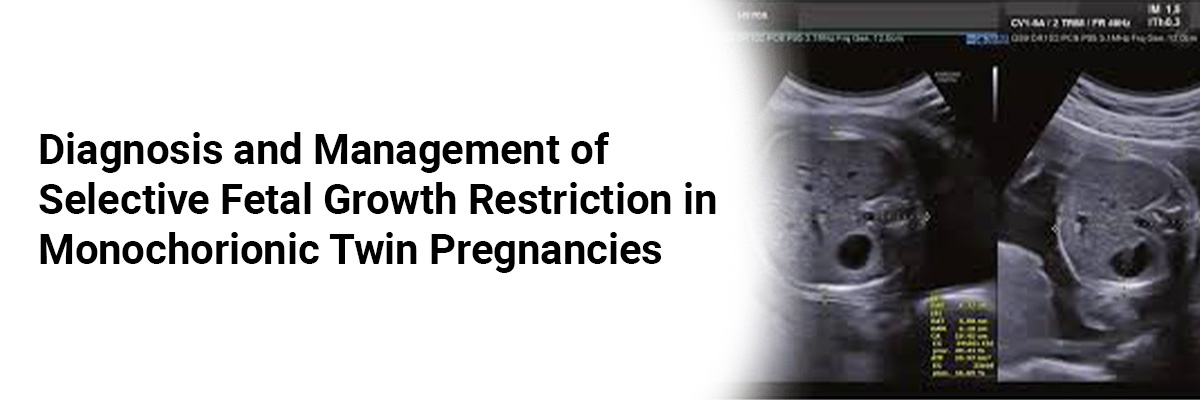
Diagnosis and management of Selective fetal growth restriction in monochorionic twin pregnancies
Monochorionic twin pregnancies account for about 30% of all twin pregnancies. The placental architecture of complex monochorionic twins predisposes both twins to unfavourable outcomes, underscoring the necessity of uniform diagnosis and management strategy. Among these adverse outcomes, selective fetal growth restriction (sFGR) affects approximately 10%–15% of monochorionic diamniotic (MCDA) twin pregnancies, in which one fetus grows normally whilst the other is growth restricted.
The present study aimed to evaluate current practices in managing sFGR in MCDA twin pregnancies through a cross-sectional international survey of clinicians. Main outcome measures include clinical practices and attitudes to diagnostic criteria and management approaches.
The outcomes of the study revealed:
- A total of 62.8% of the 180 surveyed clinicians participated and completed the survey.
- Among these, 66.4% of respondents used an estimated fetal weight (EFW) of less than the 10th percentile and an inter-twin EFW discordance greater than 25% to diagnose sFGR.
- For early-onset type I sFGR, 79.8% favored expectant management.
- In contrast, for early-onset type II and III sFGR, only 19.3% and 35.7% respectively opted for expectant management, while the majority would refer these cases for fetal intervention.
- Additionally, preferences for interventions varied: 39% would consider fetoscopic laser surgery (FLS) for type I cases, while 25.9% and 31.4% would exclusively offer FLS for type II and III cases, respectively.
Thus, the study concluded that there is considerable variation in clinical practices and attitudes toward managing early-onset sFGR, especially for type II and III cases, indicating a need for more robust evidence to guide management strategies.
Source: Prasad S, Khalil A, Kirkham JJ, Sharp A, Woolfall K, Mitchell TK, Yaghi O, Ricketts T, Popa M, Alfirevic Z, Anumba D, Ashcroft R, Attilakos G, Bailie C, Baschat AA, Cornforth C, Costa FDS, Denbow M, Deprest J, Fenwick N, Haak MC, Hardman L, Harrold J, Healey A, Hecher K, Parasuraman R, Impey L, Jackson R, Johnstone E, Leven S, Lewi L, Lopriore E, Oconnor I, Harding D, Marsden J, Mendoza J, Mousa T, Nanda S, Papageorghiou AT, Pasupathy D, Sandall J, Thangaratinam S, Thilaganathan B, Turner M, Vollmer B, Watson M, Wilding K, Yinon Y; FERN Study Team. Diagnosis and management of selective fetal growth restriction in monochorionic twin pregnancies: A cross-sectional international survey. BJOG. 2024 Nov;131(12):1684-1693. doi: 10.1111/1471-0528.17891. Epub 2024 Jul 2. PMID: 38956742.














Please login to comment on this article